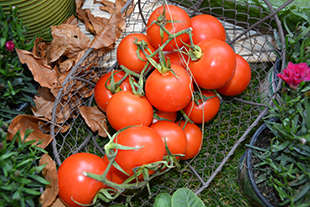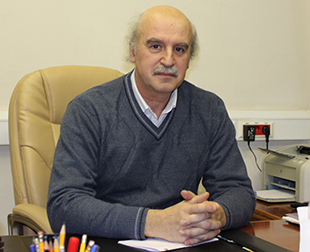Russia’s organic food market receives a boost
10 August 2018 News from the Company
 The bill defines the concept of ‘organic produce’ and establishes organic production, storage, handling, labelling and sale standards
The bill defines the concept of ‘organic produce’ and establishes organic production, storage, handling, labelling and sale standardsThe bill defines the concept of ‘organic produce’ and establishes organic production, storage, handling, labelling and sale standards. According to experts, the draft law will come into effect as per January 1st, 2020. Meanwhile, we find out more about important changes to the current law from the pioneers of the Russian organic farming movement.
‘Most significantly, the subject matter of the law is in line with the expectations of the organic community’, says Oleg Mironenko, Executive Director of the National Organic Union. ‘Currently, the amendments make it possible to legalise national and international standards that were previously not binding, help to clear supermarket shelves of fake organic products, identify and force dishonest players - using the term "organic" as a trick - out of the market.’
Anatoliy Nakaryakov, Executive Director of Savinskaya Niva, which produces organic beef as well as organic cereal, pulse and fodder crops, supports his counterparts and expresses his point of view.
‘What is important is that organic producers have been heard and responsibility for unlawful labelling of products as organic introduced’, says Anatoliy Nakaryakov. ‘But I am also concerned that there will be a lot of counterfeit products. Stringent civic control is required. We need mass advertising of the organic product label for it to be easily recognisable to consumers.’
The blurred concepts in the law have been clearly defined.
‘We have accomplished ban on the use of pesticides, agrochemicals, antibiotics, growth stimulants, hormones and GMOs’, says Oleg Mironenko, ‘with the exception of the agents the use of which is allowed in organic production by national and international standards.’ Now the law will have clear guidelines for the certifying authorities, as well as the course of action specifying what steps the manufacturer needs to take in order for his products to be recognized as organic.
Now the law will have clear guidelines for the certifying authorities, as well as the course of action specifying what steps the manufacturer needs to take in order for his products to be recognized as organic.

‘At the moment, there is only one certification company that has passed accreditation in Russia’, continues Oleg Mironenko. ‘After the adoption of the law, any certification company will have enough time for accreditation. Thus, favorable conditions for the emergence of new certification companies in the field of organic farming will be created.’
It is important that the law on organic production will come into force only in 2020. Thus, organic producers will have enough time for a transition period.
‘This period is necessary for those companies which are currently certifying their products abroad’, says Oleg Mironenko. ‘Their certificates will be valid until next year, and from then on the companies will be able to apply for certification in the framework of the adopted law.’
Savinskaya Niva has already passed certification in compliance with interstate standard GOST 33980-2016 Organic production. Production, processing, labelling and implementation regulations.
‘Savinskaya Niva is considering expansion of organic production’, says Anatoliy Nakaryakov, Director of the enterprise, ‘we are exploring the option of adding fallow land, which is eligible for certification within the first year of introduction into rotation, according to the rules of organic production. There are plans to develop organic dairy farming in the future. We have got a long way to go.‘
By Daria Denisova
Source: Webseite EkoNiva APK Holding
Translation from Russian
